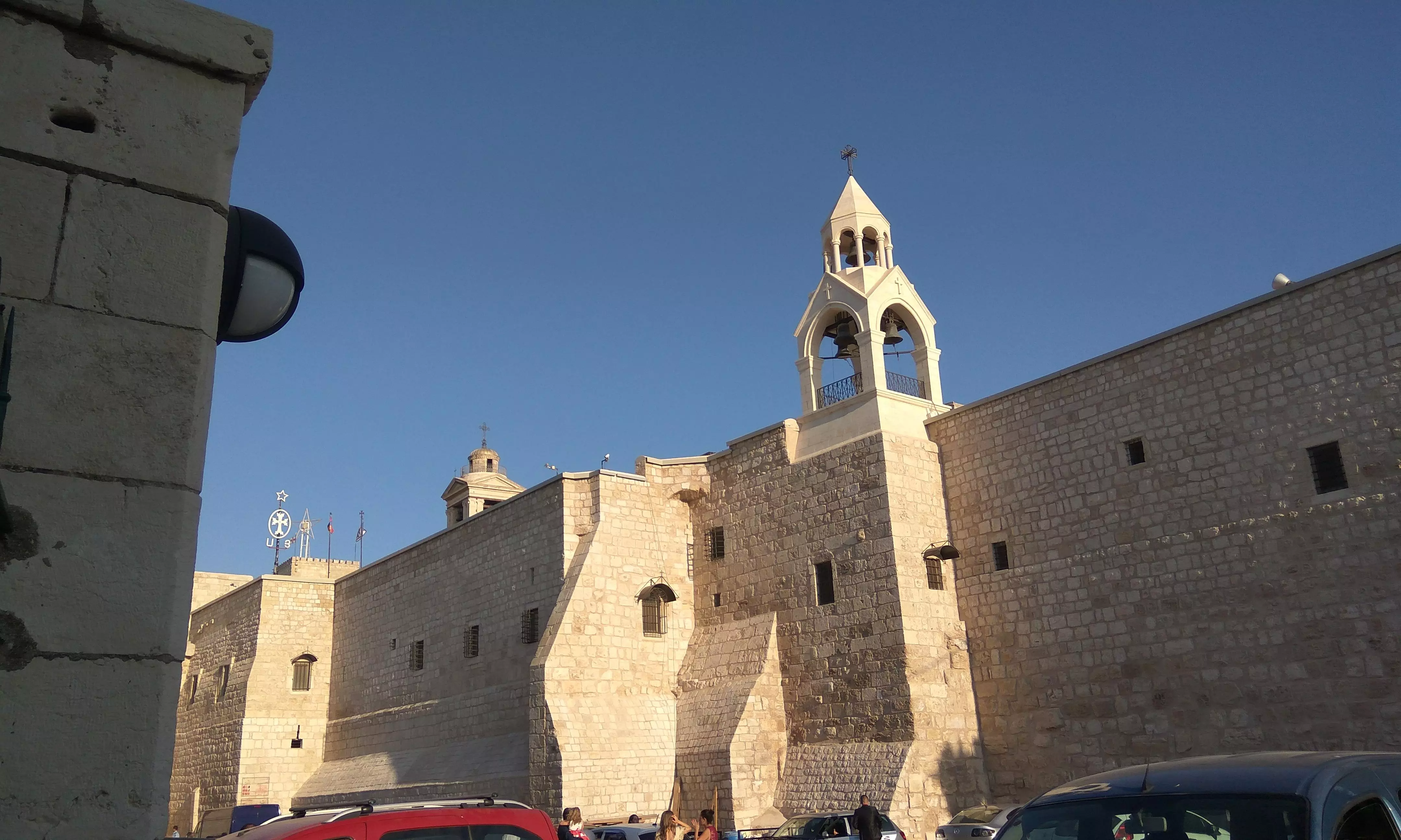
Christmas eve: Bethlehem resembles a ghost town; celebrations halted due to Israel-Hamas war

Bethlehem (West Bank), Dec 24 (AP) The normally bustling biblical birthplace of Jesus resembled a ghost town on Sunday, as Christmas Eve celebrations in Bethlehem were called off due to the Israel-Hamas war.
The festive lights and Christmas tree that normally decorate Manger Square were missing, as were the throngs of foreign tourists and jubilant youth marching bands that gather in the West Bank town each year to mark the holiday. Dozens of Palestinian security forces patrolled the empty square.
“This year, without the Christmas tree and without lights, there's just darkness,” said Brother John Vinh, a Franciscan monk from Vietnam who has lived in Jerusalem for six years.
He said he always comes to Bethlehem to mark Christmas, but this year was especially sobering, as he gazed at a nativity scene in Manger Square with a baby Jesus wrapped in a white shroud, reminiscent of the thousands of children killed in the fighting in Gaza. Barbed wire surrounded the scene, the grey rubble reflecting none of the joyous lights and bursts of colour that normally fill the square during the Christmas season.
The cancellation of Christmas festivities is a severe blow to the town's economy. Tourism accounts for an estimated 70% of Bethlehem's income — almost all of that during the Christmas season.
With many major airlines cancelling flights to Israel, few foreigners are visiting. Local officials say over 70 hotels in Bethlehem have been forced to close, leaving thousands of people unemployed.
Gift shops were slow to open on Christmas Eve, although a few did once the rain had stopped pouring down. There were few visitors, however.
“We can't justify putting out a tree and celebrating as normal, when some people (in Gaza) don't even have houses to go to,” said Ala'a Salameh, one of the owners of Afteem Restaurant, a family-owned falafel restaurant just steps from the square.
Salameh said Christmas Eve is usually the busiest day of the year. “Normally, you can't find a single chair to sit, we're full from morning till midnight,” said Salameh. This year, just one table was taken, by journalists taking a break from the rain.
Under a banner that read “Bethlehem's Christmas bells ring for a cease-fire in Gaza,” a few teenagers offered small inflatable Santas, but no one was buying. Instead of their traditional musical march through the streets of Bethlehem, young scouts stood silently with flags. A group of local students unfurled a massive Palestinian flag as they stood in silence.
“Our message every year on Christmas is one of peace and love, but this year it's a message of sadness, grief and anger in front of the international community with what is happening and going on in the Gaza Strip,” Bethlehem's mayor, Hana Haniyeh, said in an address to the crowd.
Over 20,000 Palestinians have been killed and more than 50,000 wounded during Israel's air and ground offensive against Gaza's Hamas rulers, according to health officials there, while some 85% of the territory's 2.3 million residents have been displaced.
The war was triggered by Hamas' deadly assault Oct 7 on southern Israel in which militants killed about 1,200 people, most of them civilians, and took more than 240 hostages.
The Gaza war has been accompanied by a surge in violence, with some 300 Palestinians killed by Israeli fire.
The fighting has affected life across the West Bank. Since Oct 7, access to Bethlehem and other Palestinian towns in the Israeli-occupied territory has been difficult, with long lines of motorists waiting to pass military checkpoints. The restrictions have also prevented tens of thousands of Palestinians from exiting the territory to work in Israel.
Amir Michael Giacaman opened his store, “Il Bambino,” which sells olive wood carvings and other souvenirs, for the first time since Oct 7. There have been no tourists, and few local residents have money to spare because those who worked in Israel have been stuck at home.
“When people have extra money, they go buy food,” said his wife, Safa Giacaman. "This year, we're telling the Christmas story. We're celebrating Jesus, not the tree, not Santa Claus," she said, as their daughter Makaella ran around the deserted store. (AP)
(Except for the headline, this story has not been edited by The Federal staff and is auto-published from a syndicated feed.)

